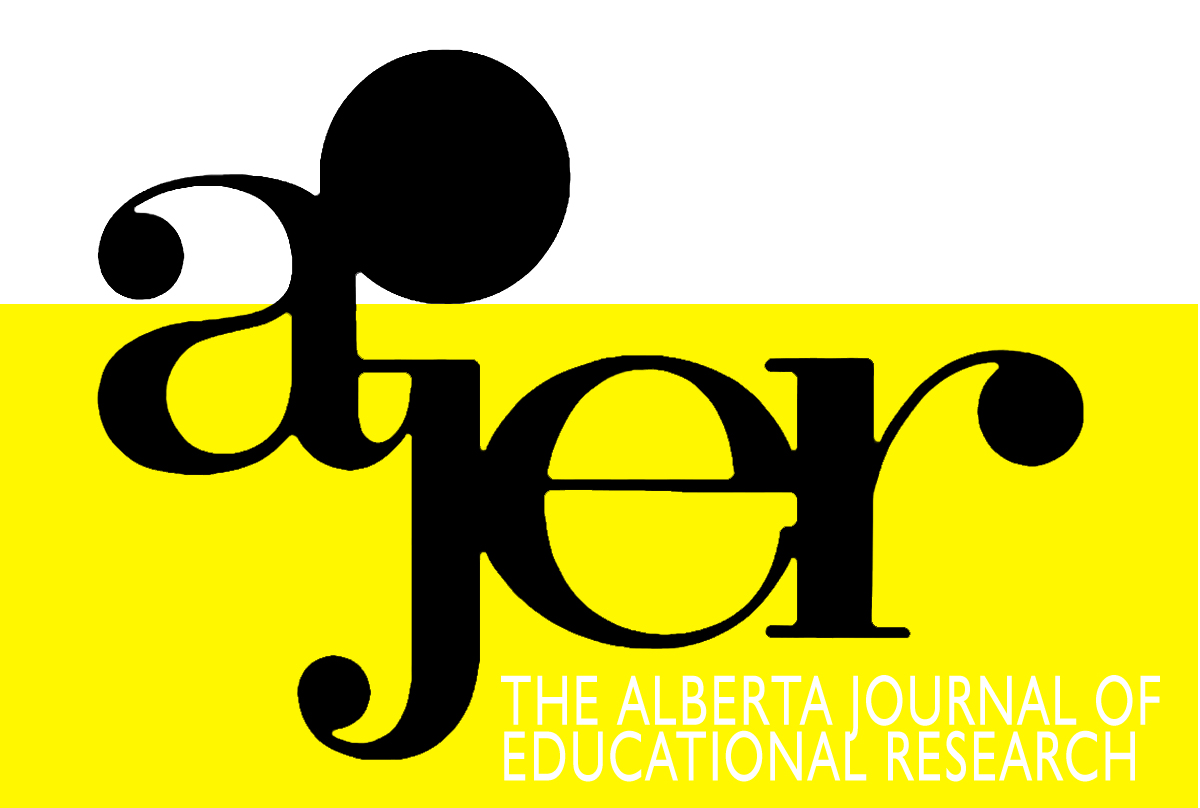Addressing Lesbian, Gay, Bisexual, Transgender, and Queer (LGBTQ) Issues in Teacher Education: Teacher Candidates’ Perceptions
DOI:
https://doi.org/10.55016/ojs/ajer.v58i3.55632Keywords:
bullying, teacher education, education, queer studies, homophobiaAbstract
Homophobic harassment and bullying are persistent issues in Canadian schools despite recent initiatives to improve school climate. Among the reasons is that educators feel reluctant or ill-prepared to address these issues. The purpose of this paper is to examine how teacher education can help make schools safer by addressing LGBTQ issues and homophobic bullying. After examining the issues, with a particular focus on the Ontario context, the authors report on a workshop titled “Sexual Diversity in Secondary Schools” that they conducted with teacher candidates. The findings suggest a two-hour workshop can help teacher candidates develop better understandings of how to address LGBTQ issues in schools. Recommendations are offered for creating safe spaces in schools by developing ethical knowledge among beginning teachers.Le harcèlement et l’intimidation homophobes constituent des préoccupations persistantes dans les écoles au Canada et ce, malgré des initiatives récentes visant à améliorer le climat à l’école. Une des raisons qui expliquent cette situation est le fait que les enseignants hésitent ou se sentent mal préparés pour s’attaquer à ces problèmes. L’objectif de cet article est d’étudier dans quelle mesure la formation des enseignants peut aider à rendre les écoles plus sures en abordant les thèmes d’orientation sexuelle, d’identité sexuelle et d’intimidation homophobe et transphobe. Après avoir examiné les questions (et en mettant l’accent sur l’Ontario), les auteurs décrivent un atelier intitulé « La diversité sexuelle dans les écoles secondaires » qu’ils ont présenté à des étudiants au programme de formation à l’enseignement. Les résultats portent à croire qu’un atelier de deux heures peut aider les étudiants au programme de formation à l’enseignement mieux comprendre comment aborder les questions relatives à la diversité sexuelle dans les écoles. On propose des recommandations qui visent la création de lieux surs dans les écoles en développant des connaissances éthiques chez les nouveaux enseignants.
Downloads
Issue
Section
License
UNIVERSITY OF ALBERTA COPYRIGHT LICENSE AND PUBLICATION AGREEMENT
If accepted, authors will be asked to sign a copyright agreement with the following points:
A. Where there is any inconsistency between this Copyright License and Publication Agreement and any other document or agreement in relation to the same subject matter, the terms of this Agreement shall govern.
B. This document sets out the rights you are granting in relation to publication of your article, book review, or research note entitled (the “Article”) through inclusion in the academic journal titled Alberta Journal of Educational Research (the “Journal”) published through the Faculty of Education, representing the Governors of the University of Alberta (the “Journal Editor”).
C. There will be no payment to you for this publication and grant of rights. In consideration of the agreement to publish the Article in the Journal:
1. You are warranting that:
- the content of the Article is your original work, and its content does not contain any material infringing the copyright of others; or, where the Article is not entirely your original work, you have obtained all necessary permissions in writing to grant the rights you are giving in this agreement;
- the content of the Article does not contain any material that is defamatory of, or violates the privacy rights of, or discloses the confidential information of, any other person;
- the Article has not been published elsewhere in whole or in part, and you will not allow publication of the Article elsewhere without the consent of the Journal Editor;
- the names of all co-authors and contributors to the Article are:
2. You agree to license the copyright in the Article to the Journal Editor, on a worldwide, perpetual, royalty free basis; and to the extent required by the terms of this agreement. You shall retain the right at all times to be acknowledged as the/an author of the Article.
3. You further agree that the Journal Editor has the entitlement to deal with the Article as the Journal Editor sees fit, and including in the following manner;
- The right to print, publish, market, communicate and distribute the Article and the Journal, in this and any subsequent editions, in all media (including electronic media), in all languages, and in all territories, ing the full term of copyright, and including any form of the Article separated from the Journal, such as in a database, abstract, offprint, translation or otherwise, and to authorize third parties to do so;
- The right to register copyright of the Journal;
- The right to edit the Article, to conform to editorial policy as the Journal Editor sees fit.
4. If any co-author or contributor to the Article does not sign this agreement, the Journal Editor reserves the right to refuse to publish the Article.



